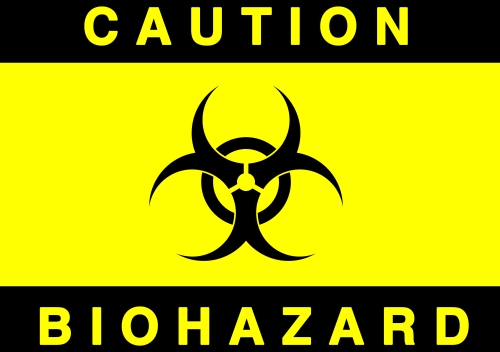Biomedical Waste Management in Delhi: Need of the Hour

Biomedical waste is defined as any waste which is generated from any health related facility and which could be injurious to the health and well being humans or the environment. Consequently, under the Biomedical Waste (Management & Handling) Rules 1998, all health care institutions are required to handle biomedical waste in a specified manner. Delhi generates approximately 7,000 metric tonnes of waste out every day out of which 70 tonnes/day is the biomedical waste. According to a Government report (2010), only about 10.125 tonnes/day of biomedical waste gets properly treated in Delhi. This is concerning and we will have to much more than what we are doing at present to ensure minimum exposure to the health risks posed by inadequate handling of biomedical waste. Fortunately, a recent case in the National Green Tribunal has helped mainstream the issue and make the authorities more pro-active.
Impacts of BMW on social environment and health
It is important to understand the impacts of biomedical waste (BMW) on the social environment and on health. Improper management of BMW could lead to infections and other health hazards. The infectious agents can enter a healthy body through a puncture, abrasion or cut in the skin; through mucous membranes; by inhalation or by ingestion. Deadly diseases like AIDS can also spread as a result of improper management of BMW.
Rules in Delhi for BMW management
The BMW Rules also make it the duty of the Occupier of the Health Care Establishment to take all steps to ensure that BMW is handled without any adverse effect to human health and the environment. As per Rule 7 of the said BMW Rules, State Pollution Control Boards in respect of States and the Pollution Control Committees in respect of Union Territories are the Prescribed Authorities (Delhi Pollution Control Committee in case of Delhi ).
As per the said BMW Rules of 1998, Bio-medical waste is to be treated and disposed off in accordance with Schedule I and in compliance with the standards prescribed in Schedule V and every occupier (a person who has control over the institution generating bio-medical waste), where required, shall set up in accordance with time schedule in Schedule VI, requisite bio-medical waste treatment facilities like incinerator, autoclave, microwave system for the treatment of waste. Health Care Establishments can also get the requisite treatment of waste at a common waste treatment (Common Bio-Medical Waste Treatment Facility, CBWTF)) or any other waste treatment facility.
For the proper management of the biomedical wastes and to ensure the implementation of the Biomedical wastes management Rules (1998), a Biomedical Waste Management Cell has been created at the Delhi Pollution Control Committee (DPCC). There are 10 Incinerators, 21 autoclaves and 3 microwaves operating in Delhi solely for the purpose of BMW management.
Current status of biomedical waste management in Delhi.
According to the Annual Report of DPCC, 10.7 tonnes/day BMW waste is treated in Delhi. However, in Delhi, the hospitals and nursing homes are found to generate 70 tonnes/day of BMW. According to media reports, various multispeciality hospitals generate BMW but are not following the rules to treat this waste. Government hospitals are also reported to be turning a blind eye to the hazards of BMW by either casually dumping the untreated waste. This is despite the fact that they have expensive incinerators installed at the hospital or have provisions to outsource the work to private agencies. A report released by the Directorate of Health Services has revealed that the BMW treatment facilities at hospitals lie unused or underutilised with little or no monitoring of how the hazardous waste is being handled. The same report reveals that major hospitals like Lok Nayak, Guru Teg Bahadur, G.B. Pant and Deen Dayal Upadhyay have failed to comply with the waste management norms despite expensive incinerators installed in these hospitals.
The report also reveals that in the past five years, five major government hospitals: Rao Tula Ram Hospital, Rajan Babu Institute for Pulmonary Medicine and Tuberculosis, Palika Maternity Hospital Lodhi Colony, International Centre for Genetic Engineering and Biotechnology and National Institute of Immunology have shut down their incinerators owing to technical reasons. Media reports suggest that these hospitals are dumping needles, syringes, glucose bottles and blood bags inside the premises of the hospitals, in areas where the entry is restricted to the employees.
BMW Management Steps: Need of the Hour
Segregation of hospital waste according to the available disposal technology is the need of the hour. Employment of cost-effective and available relevant technology can do the trick. The possibilities of recycling should be explored in a scientific and hygienic manner for permissible items. Setting up of common medical waste treatment facilities for/by different hospitals such as transportation of the hazardous waste to the common disposal system to reduce expenditure will motivate the hospitals towards adopting better BMW management practices. Safety of medical staff/rag-pickers, by the use of gloves and masks and housekeeping aspects (drinking water, sewage system of the hospitals) should be immediately addressed. Training of municipality workers by medical personnel in handling of medical waste to avoid risks and health hazards should also be practiced to minimize occupational hazards.
With a 16+ million population figure in Delhi, and limited land availability, the density of population in Delhi is always on the rise. Exposure to BMW could only prove fatal to such large number of people living so closely packed together. It is therefore very important that the civic authorities take all possible measures to minimize the risks associated with bio-medical waste by ensuring complete and safe disposal of total BMW generated.




@mansi gupta: You can find the required information here: http://dpcc.delhigovt.nic.in/bio-medical-waste.html
hi! here you mentioned about a government report published in 2010. can you please share it with me.